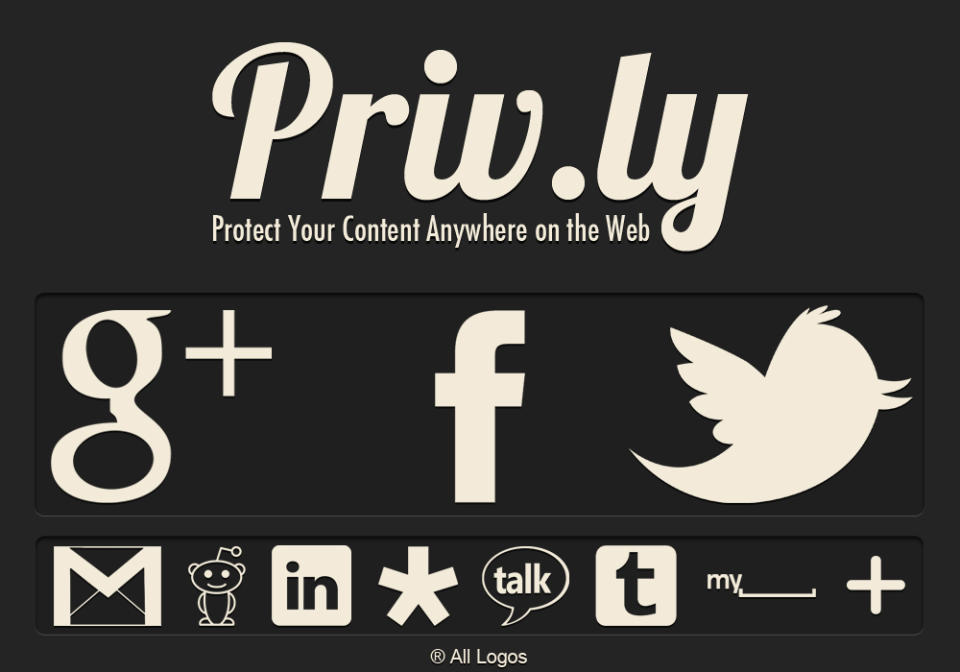New startup Priv.ly takes your status updates 'off the record'
Social networks have become ubiquitous in the digital age. Whether you use them to communicate with your friends and family, to make new contacts, to keep an eye on new trends in your line of work or to find cute pictures of cats, there’s almost no escaping sites like Facebook, Twitter, LinkedIn or Pinterest.
Social networks are a great place to connect with people but they can also leave permanent and potentially damaging trails of your online (and offline) life that can be difficult to erase.
While the social network privacy debate rages on, a new startup called Priv.ly (Privly) has stepped in to offer a solution that could revolutionize user privacy and redefine users’ relationship with social network platforms without removing them from the online discussion.
Privly lead developer and Oregon State University computer scientist Sean McGregor explained to Relaxnews that currently “almost everything you write on the internet is owned and controlled by internet companies,” which is creating big privacy headaches for users.
Rather than creating a new private social network to solve the privacy problem, Sean McGregor and the team of software engineers and artificial intelligence researchers working on Privly decided to create an open source, cross-platform project that will hand the control back to users.
“Privly is about being able to interface with the internet my family knows, and building a new social network would not accomplish that,” explained McGregor in an email to Relaxnews.
One of Privly’s main aims is to give users complete control over their content so they can edit posts, delete photos and keep comments off the record.
It does this by extending the browser to look for specially formatted links that point to private data (which could include a status update, photos, or an email) said McGregor on the Privly Kickstarter page. “When Privly finds the special links, it places the linked content onto the page you are viewing. No one between you and the person posting the content can read the content.”
“Once you control your content, you can post links on any site you use, and Privly will display the linked content where the link is found, without giving that site access,” added McGregor via email.
Recently news agencies have been reporting that Facebook users in the US are being asked by potential employers to hand over their social network passwords and login details so the employers can check what job candidates are saying online.
While it is rare for companies to request such information (less than 4% of job candidates have ever been asked for their Facebook login details, according to a poll by Betanews), McGregor says that Privly will be able to protect users against this type of snooping.
“With Privly you are capable of globally deleting, protecting, or changing your content,” said McGregor. “Hiring managers can't extort you for access to something that might not exist. You get plausible deniability.”
Privly is currently still in its pre-alpha, “proof of concept” stage, but the team has great aspirations for the project over the next few years.
McGregor said he hopes Privly will turn the web into a more even playing field where social networks can never change terms on your content retroactively or sell your privacy to the highest bidder.
Another startup is hoping to protect users from prying eyes and, according to CNET, hopes “to revolutionize online privacy” at the same time.
New Yorker Nicholas Merrill is raising funds for a non-profit organization called The Calyx Institute through which he intends to launch a privacy-focused Internet Service Provider and mobile phone service. The goal of the privacy-conscious organization will be to “use every legal and technical means available to protect the privacy of customer data,” said Merrill in a post on crowd sourced funding platform Indiegogo.



